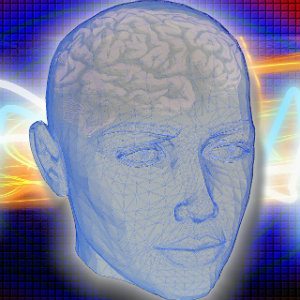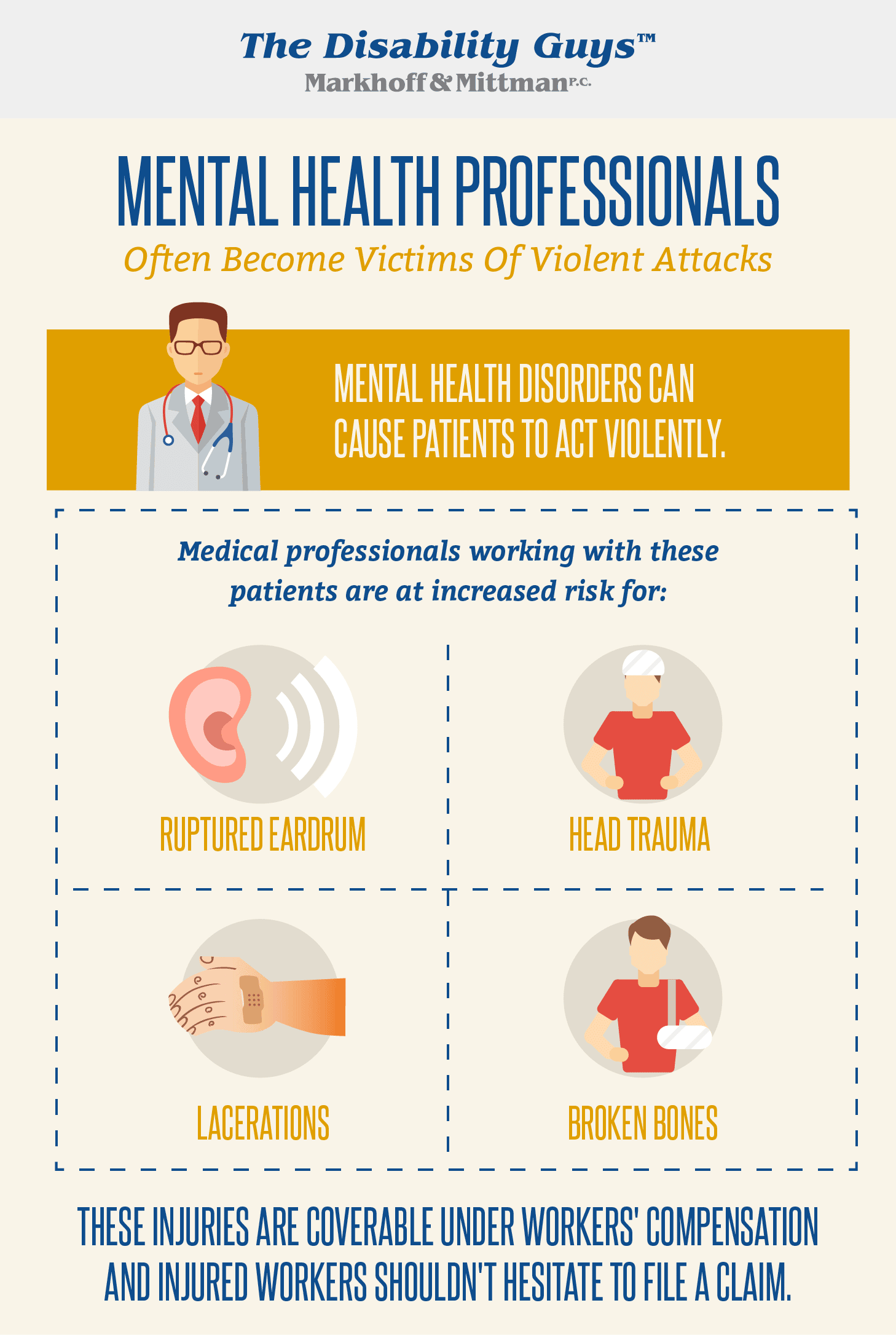Although it’s not a topic that most Americans are comfortable discussing, the fact is that mental illnesses are very real and impact more than a quarter of all adults in this country. Unfortunately, there is often a stigma associated with those who are diagnosed with a mental health condition and so many who desperately need help don’t get it. Despite this fact, the majority of patients are not violent, however, if their condition is left untreated, things may change and the very medical professionals who are trying to help them often become victims.
Violence In Mental Health Facilities
It takes a very special person to work as a physician, nurse, or psychiatrist. These caring individuals typically come into contact with aggressive patients on a daily basis. Although these patients may not even be aware of what is really going on around them and reacting from fear, that does not make them any less dangerous.
Patients who may become violent most frequently include those suffering from:
Post Traumatic Stress Disorder (PTSD)
PTSD can develop at any age and is frequently the result of a traumatic and violent experience, such as rape, domestic violence, a natural disaster, work or car accident. A large percentage of American soldiers are diagnosed with PTSD every year due to situations they were exposed to while in the military.
This condition often leaves the patient “stuck” in survival mode which means that in a situation where they feel upset or threatened they may respond as though their life was at stake.
Schizophrenia
This condition impacts the way that the patient thinks, feels, and behaves due to a changed perception of reality. There are a wide range of symptoms which fall into three categories:
- Positive Symptoms: This may include hallucinations, delusions, and movement disorders.
- Negative Symptoms: Patients exhibiting these symptoms may have a “flat” way of expressing their emotions, difficulty starting or continuing activities, reduced pleasure in life.
- Cognitive Symptoms: These symptoms impact the aspects of thinking such as the ability to take in information and use it to make an informed decision, an inability to pay attention, and difficulty with short-term memory.
Alzheimer’s Disease
Most commonly seen in the elderly, this is a progressive brain disorder which ultimately results in the destruction of thinking skills and memory. This also leads to behavioral changes and sometimes, violent reactions.
Substance Abuse Makes Violence More Likely
In many cases, patients seek relief through substance abuse including alcohol, prescription drugs, heroin, and other illegal drugs. Researchers have found that these substances can impair a user’s emotional equilibrium, cognitive abilities, and can also exacerbate symptoms like paranoia and hostility and so therefore greatly increases the risk of a violent behavior.
A Workforce At Risk
It’s not uncommon for the victim of a violent attack to sustain injuries such as:
- lacerations
- stab wounds
- tympanic membrane rupture
- dental damage including broken teeth
- broken bones
- head trauma
- rectal or genital trauma
- burns
The damage doesn’t stop there – the mental and emotional impact of an attack can leave a victim with depression, PTSD, chronic fatigue, and anxiety.
How Can An Injured Mental Health Professional Get Help?
After obtaining immediate medical care, the first place to start is a workers’ compensation claim. This claim can provide the injured worker with full compensation for their medical bills and a small portion of their lost wages if they are unable to return to work.
It is always wise to speak with a workers’ compensation attorney after being injured on the job, as they can help you identify other methods of obtaining compensation. This might include a social security disability claim or a personal injury lawsuit. In the majority of cases, more than one legal avenue is available to the victim.
In addition to the coverage offered under workers’ compensation, other claims may provide compensation for expected future medical expenses, physical pain and suffering and emotional trauma.
What If My Claim Was Denied?
It’s a sad fact that a large percentage of workers’ comp claims are initially denied. This can be because of a simple mistake on the claim for, a lack of supporting evidence, or an employer who has contested the claim. Regardless of the reason for the denial, the best way to ensure that compensation is obtained quickly is to contact an attorney.


